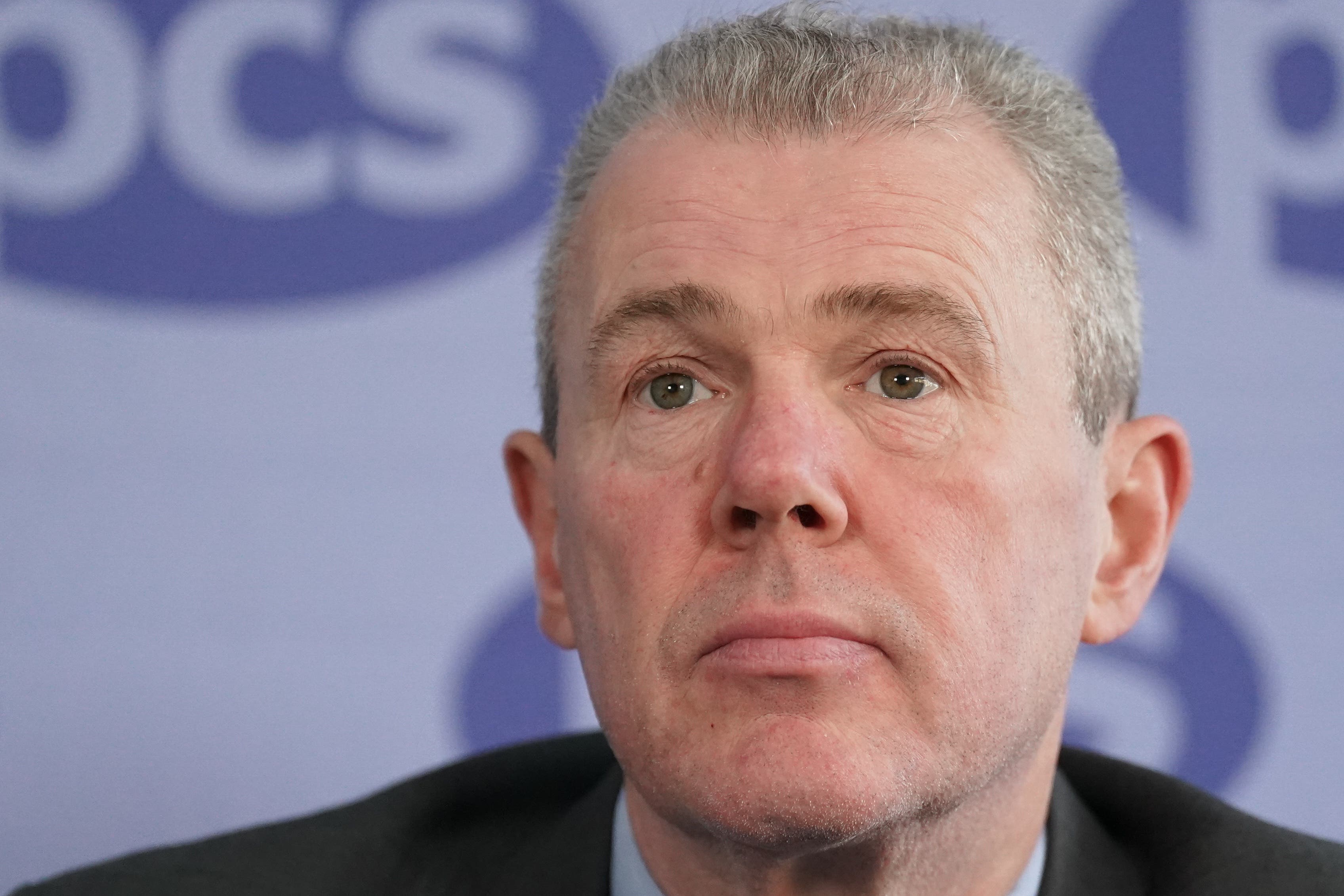Union leader questions why Government will not ‘talk to own workforce’ about pay
Mark Serwotka, general secretary of the Public and Commercial Services union, said the Government has been unwilling to engage in negotiations.

Your support helps us to tell the story
From reproductive rights to climate change to Big Tech, The Independent is on the ground when the story is developing. Whether it's investigating the financials of Elon Musk's pro-Trump PAC or producing our latest documentary, 'The A Word', which shines a light on the American women fighting for reproductive rights, we know how important it is to parse out the facts from the messaging.
At such a critical moment in US history, we need reporters on the ground. Your donation allows us to keep sending journalists to speak to both sides of the story.
The Independent is trusted by Americans across the entire political spectrum. And unlike many other quality news outlets, we choose not to lock Americans out of our reporting and analysis with paywalls. We believe quality journalism should be available to everyone, paid for by those who can afford it.
Your support makes all the difference.The leader of a civil servants’ union has questioned how the Government has been able to produce a pay offer for nurses while declining to begin negotiations for their own workforce.
Mark Serwotka, general secretary of the Public and Commercial Services (PCS) union, said it was “great news” that progress was being made in talks with health leaders, but added that the Government has displayed “utter contempt” for their own workforce.
He said that PCS members: including civil servants in Government departments; Border Force; the DVLA; and the British Museum; had been offered the “lowest pay increase across anyone in the public sector” at 2%.
Speaking on Sky’s Sophy Ridge on Sunday, Mr Serwotka said that many of these workers felt they had “no choice” but to stage lengthy strikes because many are living in “work poverty”.
It’s great news that they’re talking to the health unions and education unions, but why won’t they talk to their own workforce?
This includes more than 1,000 Passport Office workers in England, Scotland and Wales who are staging industrial action for five weeks from April 3 – including over the Easter and early May Bank Holiday weekends.
When asked how this lengthy walkout sounds to outsiders, Mr Serwotka said: “It sounds like giving everything they can to strain every sinew to force their employer to recognise that when they’re going to foodbanks to claim benefits because they work for the Government, it is obscene.
“We’ve tried for months to get the Government to engage. It’s great news that they’re talking to the health unions and education unions, but why won’t they talk to their own workforce?
“Rishi Sunak applauded his workforce during the pandemic, he lauded us for delivering the furlough scheme, for delivering three million claims to universal credit.
“Many people died in the civil service who went into work to keep our borders safe and provide frontline services, yet a 2% pay rise is lower than anywhere in the economy and they will not even negotiate with us.
“I think most of your viewers would find that utterly astonishing and that’s why people are having to take escalating strike action, because they’ve got no choice if they want to get themselves out of work poverty.”
He said that 40,000 civil servants are using foodbanks, 45,000 claim in-work benefits, and 49,000 workers across the Department for Work and Pensions (DWP) and HMRC are on the national minimum wage.
Mr Serwotka added that the fact Cabinet minister Oliver Dowden did not mention the PCS strikes during his earlier appearance on the same show “goes to confirm the utter contempt they hold their own workforce in”.
The Chancellor of the Duchy of Lancaster was asked about the pay talks with teaching unions and junior doctors, and how the pay offer for nurses would be funded.
Mr Dowden, who has played a key role co-ordinating the Government’s response to strikes, said: “Finding this money is not easy.
“But we think that in this context of ensuring that we reward nurses properly and we prevent disruption, that we can find the money to do this but it won’t be easy.”
He suggested the money could come from the £160 billion NHS budget or from within “wider Government spending”.
“Given the pressure that health services around the world are under, we’re not going to take services away from the front line,” he added.